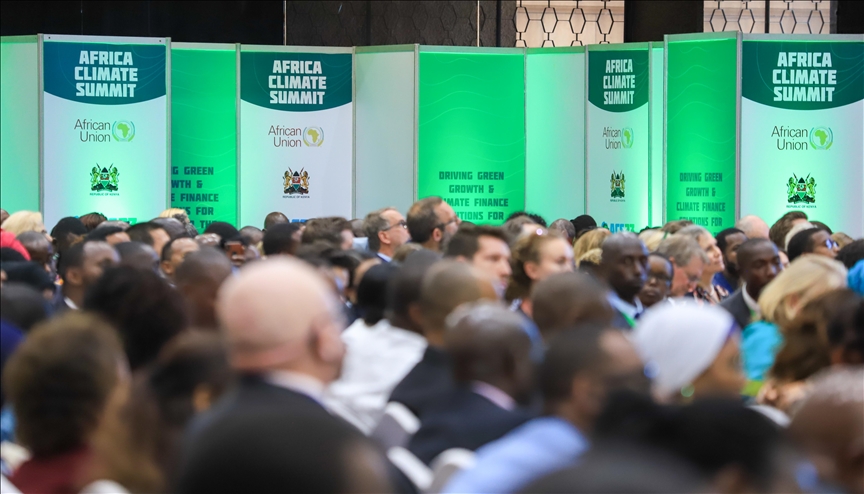Climate promises or empty rhetoric? Africa seeks action amid global distractions
At 2nd Africa Climate Summit, experts say Africa must unite and seek a role to influence climate decisions and turn promises into real action

ADDIS ABABA, Ethiopia
Africa contributes less than 5% of global greenhouse gas emissions but is paying what one climatologist calls “the highest price” for climate change, a theme that dominated the Second Africa Climate Summit in Addis Ababa.
“Africa is positioning itself as an agenda setter for climate-related issues since the continent is the primary victim,” said Kiber Zelalem, a horticulture lecturer attending the summit. “A victim needs compensation, not charity. The global north should take responsibility for the damage caused by climate change, and leadership should be given to Africa in this regard.”
The three-day summit, Sept. 8–10, drew heads of state, regional blocs, civil society and business leaders to press for investment-led solutions and predictable finance for adaptation and resilience.
During the summit, African Union Commission Chair Mahmoud Ali Youssouf pressed for equity in global financing.
“The African Union Commission firmly believes that climate finance must be fair, significant, and predictable,” Youssouf said.
'Climate finance is not charity, it is Africa’s right'
Paulino Omoj Omay, the head of Climate Change at the IGAD (Intergovernmental Authority on Development) Climate Prediction & Application Center (ICPAC), said the continent must push for promised funds while also mobilizing domestic resources and the private sector.
“Climate finance is not charity, it is Africa’s right,” Omay said. “Although the promises are there in billions every year, they are not actualized. Governments must show the political will to prioritize climate action in their annual budgets, instead of allocating far more to defense while ministries of environment struggle.”

Omay added that Africa’s bargaining power depends on unity and representation at global decision-making tables.
“If Africa is not united and not present at key platforms like the UN Security Council, UNFCCC financial instruments such as Green Climate Fund(GCF), Global Environmental Facility (GEF), Adaptation funds among others our voice will not be heard," he said. “The African Union and regional economic blocs must work together to present one African voice on climate action.”
Summit organizers unveiled an Africa-led investment drive and urged donors and investors to shift from short-term aid to long-term financing geared toward projects in energy, agriculture, water and transport.
Symbolic commitments not enough
Ethiopia, the summit host, highlighted national initiatives such as Green Legacy, a massive tree-planting campaign and renewable energy projects, and announced plans to bid to host COP32 in 2027.
Still, delegates warned that global distractions and funding shortfalls threaten delivery. Participants pointed to US aid cuts and Europe’s focus on conflicts in Ukraine and Palestine as factors that have diverted attention and resources away from African climate priorities. Civil society and local NGOs, they said, are struggling to maintain adaptation and resilience programs amid tightened budgets.
For many at the summit, symbolic commitments are not enough. They want enforceable finance mechanisms, stronger domestic budgeting for climate action, and a united African front that can translate summit rhetoric into measurable results for communities already facing floods, droughts and food insecurity.
“The dictation must stop from the global north,” Zelalem said. “Step back and give a genuine lead for African solutions.”
Anadolu Agency website contains only a portion of the news stories offered to subscribers in the AA News Broadcasting System (HAS), and in summarized form. Please contact us for subscription options.




